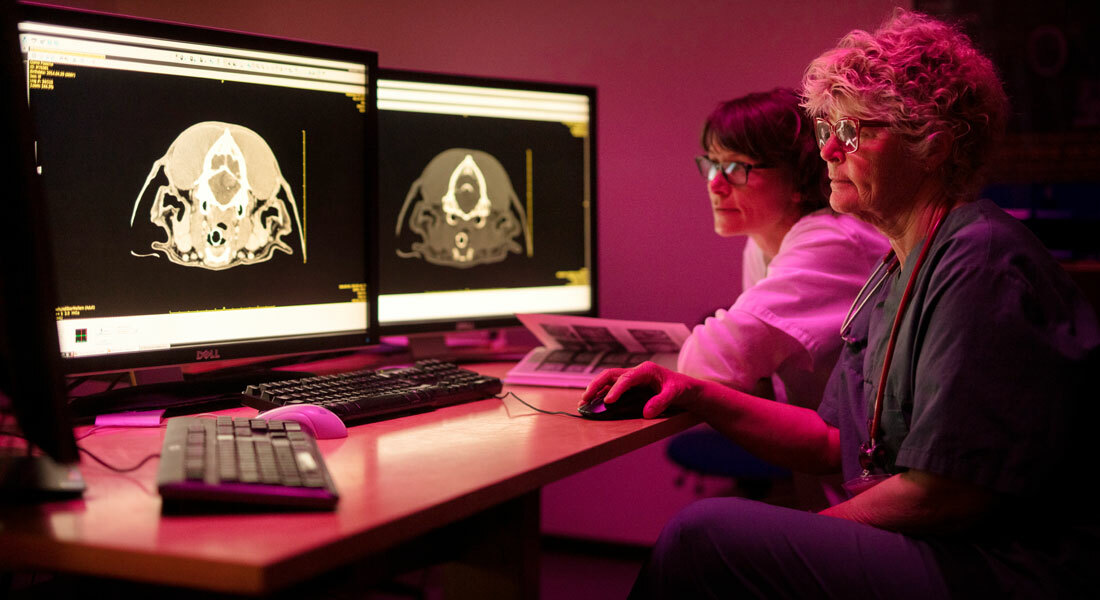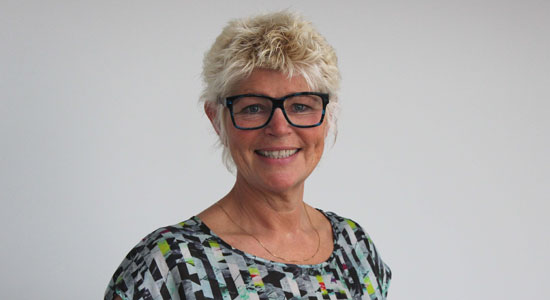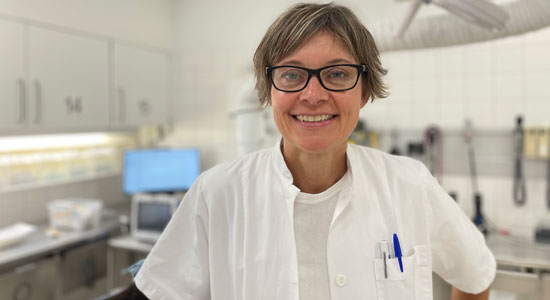Click here to read the curriculum in the course catalogue.
Course code: SCAM25037U
Neurosurgery and Neuro-Ophthalmology
This course is a part of

This course module will have a special emphasis on the approach to neurological patients that are candidates for surgical therapeutic procedures, especially surgery of the spine. As dysfunctional bladder control is a common complication with spinal cord lesions, neuro-urology addressing neuronal innervation and control of the bladder is reviewed. Furthermore, this course module will address neuro-ophthalmology in theoretical lectures.
The course consists of theoretical lectures that can advance the participants knowledge and understanding of high quality neurosurgery for especially the spine and lesions and diseases within companion animal neuro-ophthalmology. Neuro-surgery includes practical training in spinal surgery in a neuro-surgery wet lab.
The purpose of this course module is to extend the students’ knowledge, skills and competences within the approach to, assessment and management of neurological patients in need of surgery including the planning of perioperative management and special analgesia requirements. The course will extend the students’ knowledge, skills and competences within the approach to, assessment and management of companion animal neurological patients with neuro-ophthalmological problems.
Read more about the specialisation tracks and the Master's programme on the main page:
Course Directors on Advanced Diagnostic Clinical Neurology

Mette BerendtProfessor |

Hanne B. GredalAssociate Professor |
Course details on Advanced Diagnostic Clinical Neurology
Dates and examination
Course dates
11 - 15 November 2024.
Course dates 2026
9 -13 November 2026
Course dates 2028
13 - 17 November 2028
The course is available every second year.
Examination
Please find dates and details about the exam in the exam schedule.
Learning outcomes
Having completed the course, the student must be able to:
Knowledge
- Understand the etiology, pathophysiology and clinical appearance of neurological disorders in companion animal patients with a focus on the theory of neuro-ophthalmology and theoretical and practical surgical intervention of especially the spine.
- Define and identify relevant anatomical structures of importance for a successful outcome of neurosurgery with a main emphasis on spinal surgery.
- Understand and use common and typical surgical techniques for companion animal neurological patients in need of surgery of the spine and be able to plan perioperative requirements, including post-operative management, pain alleviation and rehabilitation.
- Explain, reflect upon, and discuss a problem oriented and evidence based work-up and treatment plan for companion animal patients with neurological surgical disease.
- Understand the neuroanatomy, lesion localization and common diseases of the neuro-ophthalmological system in companion animals.
Skills
- Assess companion animal neurosurgical patients preoperatively, and plan and perform perioperative treatment for such patients.
- Perform common and typical surgical techniques for companion animal neurological patients in need of surgery, with a special emphasis on spinal surgery.
- Assess companion animal neuro-surgical patient’s perioperatively with focus on treatment effect, complications and prognosis. Assess, prognosticate and suggest treatment strategies for companion animal patients with neuro-ophthalmological problems
Competences
- Evaluate, plan and manage a diagnostic workup for patients with neurological disease in need of surgical intervention.
- Plan advanced therapy/procedures for companion animal neurological patients in need of surgical intervention of the spine.
- Independently obtain, evaluate and elaborate on evidence based new knowledge within companion animal neurological patients that are candidates for surgery and demonstrate knowledge of typical surgical techniques for companion animal neurological patients in need of surgery, with a special emphasis on spinal surgery.
- Collaborate and communicate within and between specialist and non-specialist peers and lay- persons involved in companion animal surgical neurological patient management.
- Understand and perform a well-founded clinical and therapeutic approach to patients with neuro-ophthalmological problems.
Admission criteria
- Hold a degree in Veterinary Medicine
- Hold one of the following certifications
- DVA Certificate in Small Animal Diseases (equivalent to the 4 compulsory courses of the Master of Companion Animal Clinical Science)
- Swedish / Norwegian / Finnish specialist in diseases of dogs and cats
- Equivalent competences
- Have a minimum of 2 years of relevant work experience from companion animal practice
- Be proficient in English
Find detailed information about the formal requirements for this course.
Read more about admission on the main page of Master of Companion Animal Clinical Science.
Tuition fees
EU/EEA citizens*
Single course student: 36,500 DKK
Master student: 33,000 DKK
Non-EU/EEA citizens
Single course student: 40,740 DKK
Master student: 37,240 DKK
Tuition fees include course materials and lunch/coffee. Books are not included in the tuition fees and must be purchased by the participants.
*Citizens of the EU, EEA or Switzerland is entitled to a subsidised tuition fee, due to EU legislation, hence the difference in price.
Location
University of Copenhagen
University Hospital for Companion Animals
Dyrlægevej 16
1958 Frederiksberg
Denmark
Contact
Christine Gulstad
Study Administration Officer
lifelonglearning@adm.ku.dk
Tlf: +45 35 32 12 73
